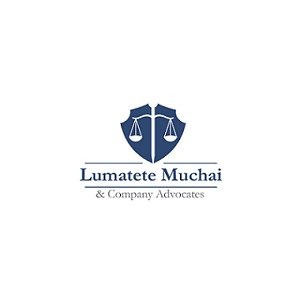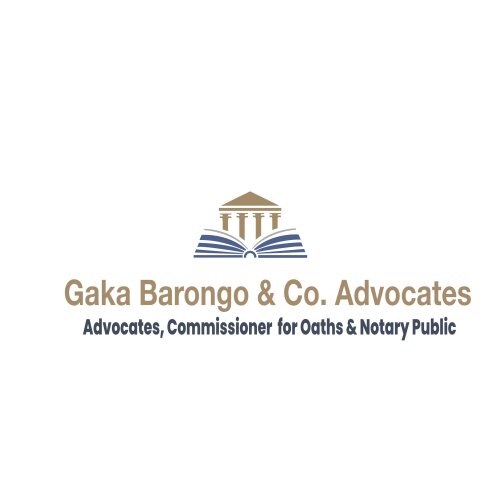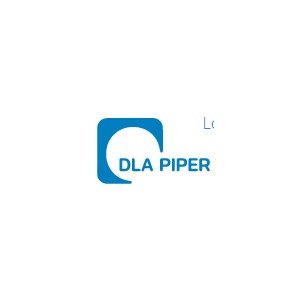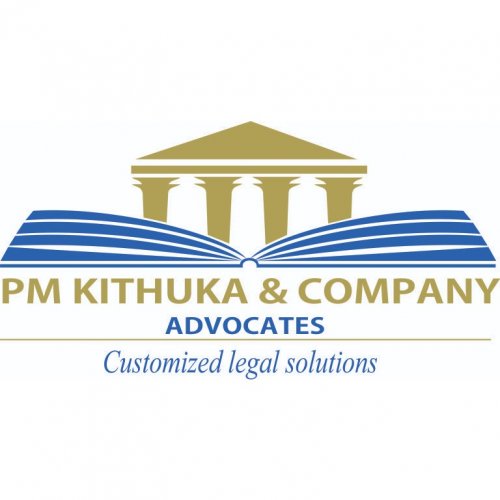Best Sanctions & Export Controls Lawyers in Nairobi
Share your needs with us, get contacted by law firms.
Free. Takes 2 min.
List of the best lawyers in Nairobi, Kenya
Legal guides written by Adroit Law LLP:
- Kenya Launches Digital Nomad Visa: A Gateway for Remote Workers
- Navigating the Payment System License Maze in Kenya
- Navigating the Complexities of Mining Licenses and Permits in Kenya: A Look into Artisanal and Large-Scale Operations
About Sanctions & Export Controls Law in Nairobi, Kenya
Sanctions and export controls are areas of law that regulate the trade of goods, technology, and services across international borders. In Nairobi, Kenya, these legal frameworks are shaped by foreign policy, national security concerns, and obligations under international law. Sanctions can refer to measures imposed by the Kenyan government or international bodies such as the United Nations to restrict trade with specific countries, individuals, or entities. Export controls, on the other hand, are rules that limit the export of certain sensitive or strategic goods, technologies, or information from Kenya to other countries, especially where national security or international commitments are involved.
Kenya, as a regional hub, maintains compliance with several global and regional agreements on sanctions and export controls. The aim is to prevent illegal trade, money laundering, terrorism financing, and the proliferation of weapons that could threaten peace and stability. Businesses, investors, and individuals engaged in cross-border transactions need to be aware of and comply with these regulations to avoid legal, financial, and reputational risks.
Why You May Need a Lawyer
Navigating sanctions and export controls in Nairobi can be complex and often requires legal expertise. Here are some common situations where seeking the advice of a legal professional is crucial:
- You are involved in importing or exporting goods or technology that may be subject to regulatory restrictions.
- Your company has been notified of a potential violation related to international sanctions or export controls.
- You plan to engage in business with entities or individuals listed on Kenyan or international sanctions lists.
- You require assistance in obtaining the necessary export licenses or complying with end-use and end-user certification requirements.
- You are facing investigations, enforcement actions, or penalties from Kenyan regulatory authorities.
- You need guidance on the due diligence required when entering new markets or dealing with high-risk jurisdictions.
- Your business is considering restructuring operations or transactions to comply with recent regulatory updates.
- You need to train staff or design compliance programs in your organization regarding sanctions and export controls.
Local Laws Overview
Kenya's framework for sanctions and export controls is informed by both domestic legislation and international legal obligations. The key laws and regulations include:
- The Security Laws (Amendment) Act, 2014, which addresses issues related to national security, terrorism, and the control of certain goods and information.
- The Proceeds of Crime and Anti-Money Laundering Act (POCAMLA), which outlines restrictions on transactions that may be linked to sanctioned individuals or entities.
- The Kenya Trade Remedies Act, which covers aspects of trade defense, including enforcement of international sanctions.
- Customs laws administered by the Kenya Revenue Authority (KRA), which provide for the licensing and inspection of goods for export or import, including dual-use items.
- International obligations imposed through United Nations Security Council sanctions and regional agreements under the African Union and East African Community.
Enforcement is typically overseen by several government bodies, including the Ministry of Foreign Affairs, the Kenya Revenue Authority, the Central Bank of Kenya, and security agencies. Non-compliance can result in heavy fines, seizure of goods, revocation of licenses, or even criminal prosecution.
Frequently Asked Questions
What are sanctions and how do they affect trade in Kenya?
Sanctions are legal restrictions imposed by the government or international organizations to prohibit or limit trade with certain countries, companies, or individuals. In Kenya, sanctions can impact who you can do business with, what goods you can export or import, and may require additional due diligence and compliance efforts.
Who regulates export controls in Kenya?
Export controls in Kenya are primarily overseen by the Kenya Revenue Authority (Customs Department), the Ministry of Foreign Affairs, and other sector-specific regulators depending on the nature of the goods or technologies involved.
What goods are subject to export controls in Kenya?
Goods subject to export controls typically include military equipment, dual-use goods (which can be used for both civilian and military purposes), sensitive technology, precious minerals, and other items that may pose security risks or are restricted under international agreements.
Can I export to a country under United Nations sanctions?
Generally, exporting goods or services to a country under United Nations sanctions from Kenya is prohibited unless you have obtained a specific exemption or license from the relevant authorities.
What are the penalties for breaching sanctions or export controls in Kenya?
Penalties can range from administrative fines, seizure or forfeiture of goods, restriction of business operations, cancellation of licenses, to criminal prosecution with potential imprisonment for severe violations.
Do I need a license to export goods from Kenya?
Certain goods require an export permit or license, especially if they fall under controlled or restricted categories. The nature of your goods and the destination country will determine if a license is needed.
How can I check if my business partners are on a sanctions list?
You can conduct due diligence by checking lists published by the Kenyan government, the United Nations, or other international bodies to verify if your business partners are named in any sanctions programs.
How often do sanctions and export control regulations change in Kenya?
These regulations can change frequently in response to international developments or security concerns. It is important to stay updated through official announcements and seek legal advice regularly.
Are there industry-specific export controls in Kenya?
Yes, certain industries such as mining, telecommunications, and chemicals may face additional export controls due to the sensitive nature of their products or related international commitments.
What should I do if I am accused of violating sanctions or export controls?
You should seek immediate legal assistance to assess the situation, respond to any allegations, and ensure your rights are protected during investigations or enforcement actions.
Additional Resources
If you need more information or guidance on sanctions and export controls in Nairobi, the following resources and bodies can be of assistance:
- Kenya Revenue Authority - Customs Department for permits and regulations on imports and exports
- Ministry of Foreign Affairs - for information on international obligations and regional agreements
- Central Bank of Kenya - for financial sanctions and monitoring of transactions
- Kenya Association of Manufacturers - for industry guidance and compliance support
- Law Society of Kenya - for referrals to qualified legal professionals in sanctions and export controls
- United Nations Security Council Sanctions Committees - for updates on international sanctions lists
Next Steps
If you believe you may be affected by sanctions or export controls or require legal advice, consider the following steps:
- Assess your activities and determine if they fall under any sanctioned or controlled categories.
- Consult with a lawyer who specializes in sanctions and export controls to evaluate your compliance status.
- Gather all relevant documentation related to your business, transactions, or the goods in question.
- If facing enforcement actions, refrain from making public statements and seek legal representation immediately.
- Stay informed about any changes to local and international laws that may impact your business operations.
- Engage with industry groups or professional associations for additional guidance and best practices.
A specialized lawyer will help you understand your obligations, mitigate risks, and ensure that your business operations remain compliant with Kenyan and international law.
Lawzana helps you find the best lawyers and law firms in Nairobi through a curated and pre-screened list of qualified legal professionals. Our platform offers rankings and detailed profiles of attorneys and law firms, allowing you to compare based on practice areas, including Sanctions & Export Controls, experience, and client feedback.
Each profile includes a description of the firm's areas of practice, client reviews, team members and partners, year of establishment, spoken languages, office locations, contact information, social media presence, and any published articles or resources. Most firms on our platform speak English and are experienced in both local and international legal matters.
Get a quote from top-rated law firms in Nairobi, Kenya — quickly, securely, and without unnecessary hassle.
Disclaimer:
The information provided on this page is for general informational purposes only and does not constitute legal advice. While we strive to ensure the accuracy and relevance of the content, legal information may change over time, and interpretations of the law can vary. You should always consult with a qualified legal professional for advice specific to your situation.
We disclaim all liability for actions taken or not taken based on the content of this page. If you believe any information is incorrect or outdated, please contact us, and we will review and update it where appropriate.

















